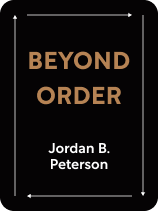

This article is an excerpt from the Shortform book guide to "Beyond Order" by Jordan Peterson. Shortform has the world's best summaries and analyses of books you should be reading.
Like this article? Sign up for a free trial here.
Do you let small stressors pile up until they’re big problems? Do your health, happiness, and relationships suffer as a result?
Jordan Peterson wants to help you live a life of meaning despite the chaos all around. He provides 12 rules for doing so in his book Beyond Order. Rule 3 says this: Do not hide unwanted things in the fog.
Read more to learn exactly what this means and how to improve this area of your life.
Jordan Peterson’s Beyond Order: Rule 3
Peterson provides this recommendation with Beyond Order Rule 3: Do not hide unwanted things in the fog. Basically, he’s saying that you shouldn’t ignore chronic stressors lest they become larger issues. Daily life is full of tiny, repeating pricks of stress—kids to care for, work colleagues to deal with, imperfect relationships to manage, and chores to juggle. If you let these pricks build up, they’ll amount to tons of stress over time.
As Peterson explains, a little thing that happens every day isn’t actually small because most of your life is made of those routine occurrences. So, if your routines regularly prick you with little stressors, that irritation will build up until it bursts.
(Shortform note: Chronic stress is a well-documented condition, and as Peterson says, it can become serious if ignored. Symptoms include aches and pains, fatigue, distractibility, and irritability—each of which can further worsen your ability to deal with the sources of your stress. Fortunately, chronic stress is treatable with exercise, getting plenty of sleep, and/or practicing mindfulness. With a clearer headspace, you might then plan to address the roots of your stress, whether they’re from work, home life, or elsewhere.)
To solve this problem, Petersons recommends that you do the following:
- Acknowledge your chronic stressors. Take stock of where they are and get clear on why they bother you.
- Find ways to deal with them. Think of changes you can make to your routines, or prepare to talk with the people contributing to your stress.
Since these little stressors often involve relationships, Peterson emphasizes that you must get clear about how you feel and communicate that to whomever’s involved. For instance, you might get annoyed daily by your partner’s habit of leaving his dirty laundry around the house. First, acknowledge this stressor and get clear about why it bothers you. Then, find a way to fix it—this could be as simple as speaking to your partner and asking for the change you need.
By doing this with each of your previously ignored stressors, you’ll clear up emotions that would otherwise fester beneath the surface. You’ll get to know how you really feel on a daily basis, and you’ll often change your daily life for the better. According to Peterson, the alternative is to accept death by a thousand cuts—daily misery from suppressed emotions that will trouble you and your loved ones unendingly.
| Address Your Stressors With Nonviolent Communication Peterson isn’t the first to highlight the importance of effective communication in relationships. In Nonviolent Communication, for instance, the authors point to the importance of acknowledging your emotions whilst maintaining compassion for how the other person feels, too. Nonviolent communication has four specific steps: 1. Observe—Pay attention to your emotions and the situation while avoiding judgments. 2. Express—State how you feel with a simple “I feel … “ format. For example, say, ”I feel hurt” rather than “You hurt me.” 3. Connect—Connect how you feel to a core need, such as autonomy or integrity. 4. Request—Ask for something specific to begin addressing your feelings. A nonviolent communication might look like, “Son, I heard you drove recklessly in the snow. I feel scared because I need you to stay safe. I’d like to talk together about safe driving.” By communicating this way—gently, clearly, and candidly—you can better avoid arguments and instead have productive, connected conversations. |

———End of Preview———
Like what you just read? Read the rest of the world's best book summary and analysis of Jordan Peterson's "Beyond Order" at Shortform.
Here's what you'll find in our full Beyond Order summary:
- A no-nonsense guide to navigating the chaos of our difficult world
- How and why you should listen to your conscience
- How to show up for life as fully as you can






